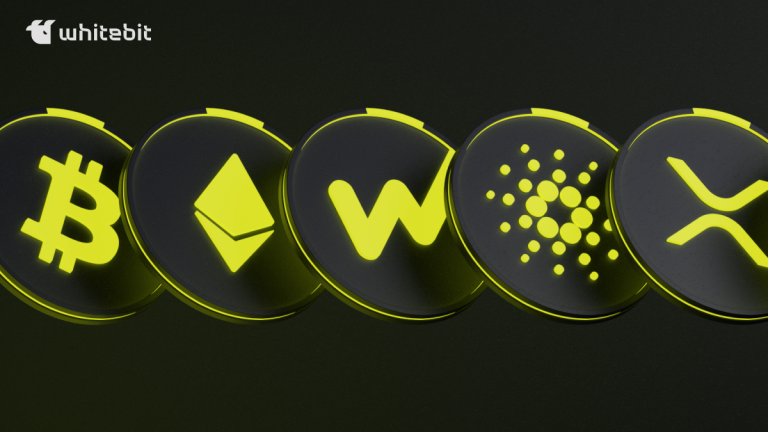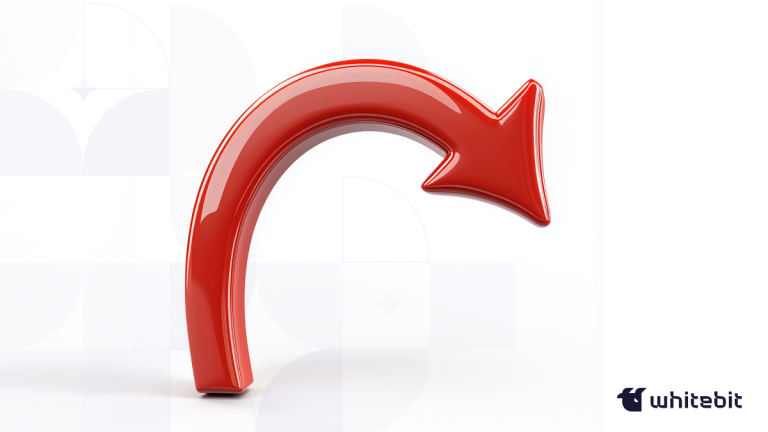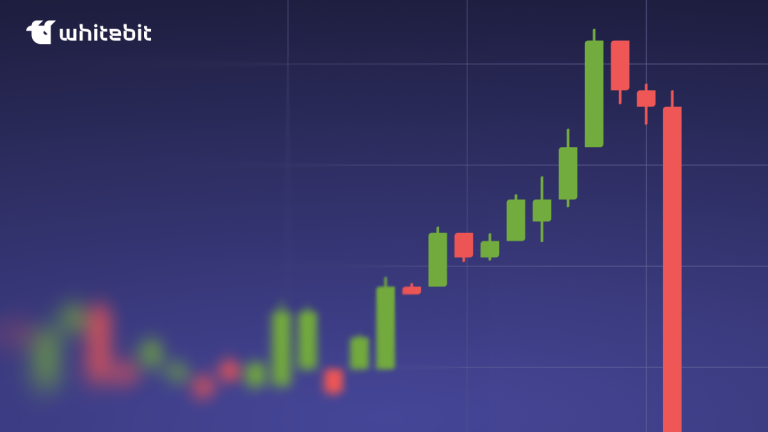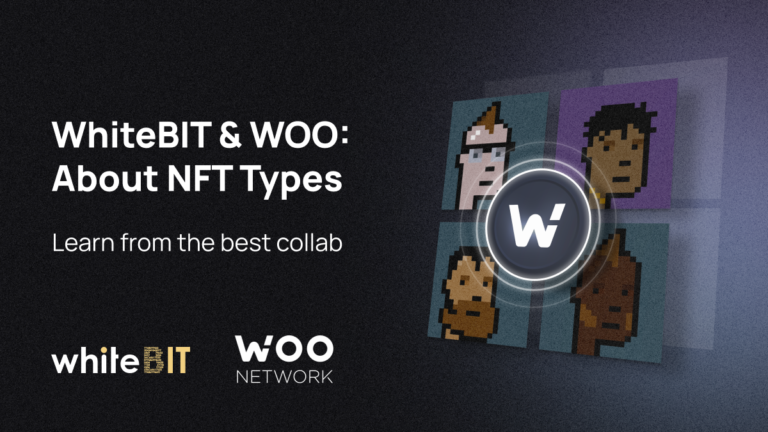Blockchain in logistics
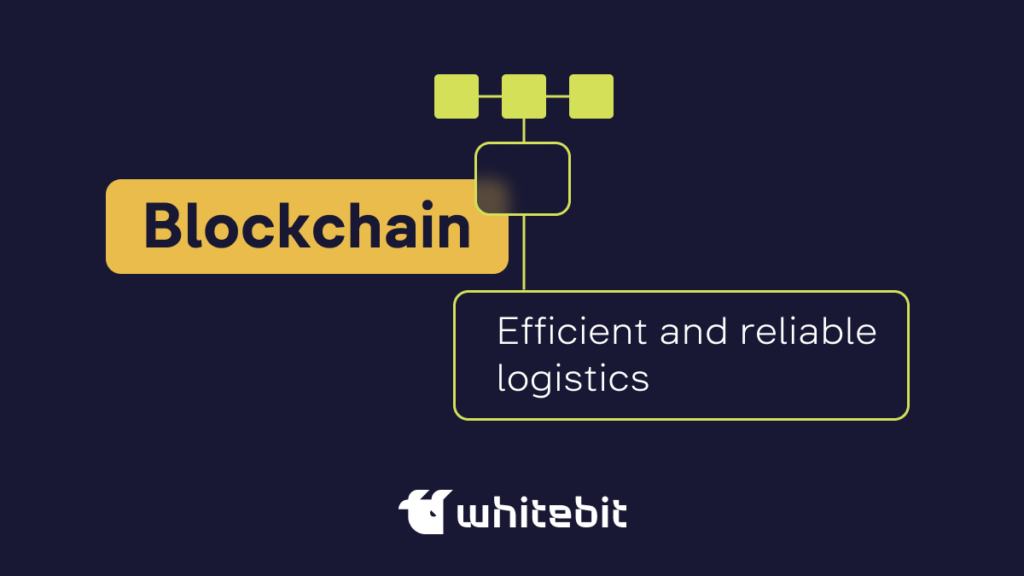
Blockchain allows for building reliable and transparent relationships between participants of any system. The technology is being successfully implemented in various business sectors, from the automotive industry to logistics, making it possible to speed up and increase the efficiency of processes.
The use of blockchain in logistics is one example of how distributed ledger technology can help solve the following problems:
- document flow;
- cargo tracking;
- authentication;
- timely informing about changes;
- transparency;
- payments and billing;
- dispute resolution.
Let’s find out what blockchain is in logistics, implementation examples, and how the uses of blockchain technology improve the efficiency of these processes to help companies improve their supply chains.
Application of blockchain technology in logistics supply chains
In 2021, the global logistics market was estimated at $9.5 trillion. In the next 5 years (2022–2027), it is expected to grow to $13.3 trillion. Despite the continuous increase in supplies, the human factor, cumbersome paperwork, and many contractors greatly slow down the process and increase the cost of services.
Blockchain is able to solve communication problems, eliminate inaccuracies in documentation, increase GDP and save the industry nearly $40 billion.
Advantages of blockchain in logistics and transportation industries
Logistics includes not incorporates production and choosing the transport but also:
- quality and transportation conditions checks;
- searching for the source in case of damage to the goods;
- communication with intermediaries;
- search for the optimal route;
- choice of packaging and much more.
At the same time, participants store all information in different accounting systems, which complicates communication and slows down access to data. As a result, cargo is lost, paperwork requires additional costs, and red tape to resolve disputes can last for months. Below we describe how blockchain in logistics and supply chain help maintain transparency, increase customer confidence and reduce the cost of shipping goods.
Transparency of the supply chain
One of the benefits of blockchain in logistics is transparency. It can solve the problem of low integrity of information due to the unavailability or incompleteness of data for control. It encourages smuggling and loss of cargo. The opaque process of the formation of supplies costs makes companies overpay.
Blockchain capabilities make it possible to make supply chains transparent and, for example, check cargo information. It eliminates disagreements and forgeries in the documentation of all parties. The information stored on the blockchain cannot be changed. It will ensure the constant integrity of data from raw material suppliers to the final location and reduce the number of product manipulations.
The customer will also be able to see the preliminary results of the counterparty’s work (delivery delays, payments). To control transportation conditions, you can use RFID tags that transmit data directly to the blockchain. In the event of unauthorized opening of the packaging or violation of storage conditions, it will be possible to quickly and accurately determine whose fault it was and at what stage the problem arose.
Acceleration of the delivery process
About 30 parties are involved in each delivery, including insurance, banking organizations, carriers, and third parties. At the same time, about 200 documents are generated. It includes waybills, bills of lading, invoices, proof of supply, and insurance.
Document flow can be optimized using smart contracts. Combined with a blockchain in shipping logistics, the technology can:
- impose fines in case of damage to goods during transportation immediately, without waiting for investigations;
- due to increased volumes of delivery and paperwork, some cargo is delayed in ports, which slows delivery, and, in some cases, affects the quality of transported goods. Blockchain technology allows confirmation operations to be carried out in seconds, contributing to the rapid movement of goods through the supply chain.
- speed up product traceability control from the raw material supplier to the store shelf.
Shipping costs reduction
Registration of the necessary documents takes not only time but also entails costs of 10–15% of the delivery fee. With the help of a distributed ledger and smart contracts, you can eliminate the cost of paperwork.
Customer confidence increase
Blockchain in supply chain logistics can provide the end buyers or consumers with information about the delivered goods. It is essential for industries where consumers are increasingly paying attention to production materials. Due to blockchain, a person can find out everything about where, how, and from what product was made.
If the data in the registry remains unchanged, the client will be sure that the manufacturer provides truthful information, which will increase the trust of brand customers.
The blockchain and smart contracts market can be adapted to any company where logistics is present.
Disadvantages of blockchain in transport logistics
The disadvantages of blockchain lie in embedding the technology into existing workflows. At the initial stages, staff training and transition to enterprise blockchain in supply chain logistics will take time. Another problem is standardization across different companies. To work with the blockchain, all companies involved in the supply chain must integrate it into their companies. But two different blockchains cannot interact with each other. Not all companies are ready or willing to move to blockchain. Moreover, the introduction of a distributed ledger will entail additional costs.
The disadvantages also include the immutability of smart contracts. Suppliers need the ability to change the terms of the contract. It can happen under conditions beyond their control, but smart contracts do not allow changes.
Examples of blockchain use cases in logistics
Blockchain fortes are immutability, speed, and reliability. Companies such as Walmart, Bumble Bee Foods, Nestle, and Unilever are already using blockchain to improve supply traceability, quality, and information sharing. The use of blockchain technology in logistics makes it possible to scale, increase profits, and respond to problems on time. Let’s see examples of blockchain in logistics to find out how the technology improves the process.
Visa. The international financial service has launched its payment service — B2B Connect. Due to it, businesses can directly make cross-border payments for large amounts faster and cheaper.
Walmart. The retailer implemented blockchain several years ago and, by 2018, could already track 25 products from 5 different manufacturers. And in 2019, Walmart China announced VeChainThor, a blockchain-based tracking platform. At that time, 23 product lines had already been tested, with the possibility of expanding to 100 lines.
Nestle. The company uses the Food Trust blockchain to manage its ingredient supply chains. In this way, Nestle lets consumers know what products are made of.
MediLedger. The company has implemented a distributed ledger to manage the supply of medicines by EPCIS standards. All US pharmaceutical companies are required to switch to this standard in 2023.
Cryptocurrency projects do not stand aside. For example, on WhiteBIT, you can find projects related to logistics: VeChain and Ambrosus.
VeChain enables the development of blockchain-based decentralized applications (dapps) focused on improving supply chains. The project has already partnered with companies such as China Unicom, BMW, and DNV GL.
Ambrosus offers end-to-end document management and has partnered with independent inspection organization QSS Global SA. The Ambrosus blockchain streamlines work and give access to all interested parties while maintaining data immutability.
The number of blockchain application areas and the popularity of blockchain technology are constantly growing. As part of logistics, large companies have already introduced technology into their processes, increasing their effectiveness. Tech giants (IBM, Microsoft) and crypto projects (VeChain) have ready-made solutions that optimize the work of all supply chain parties.

